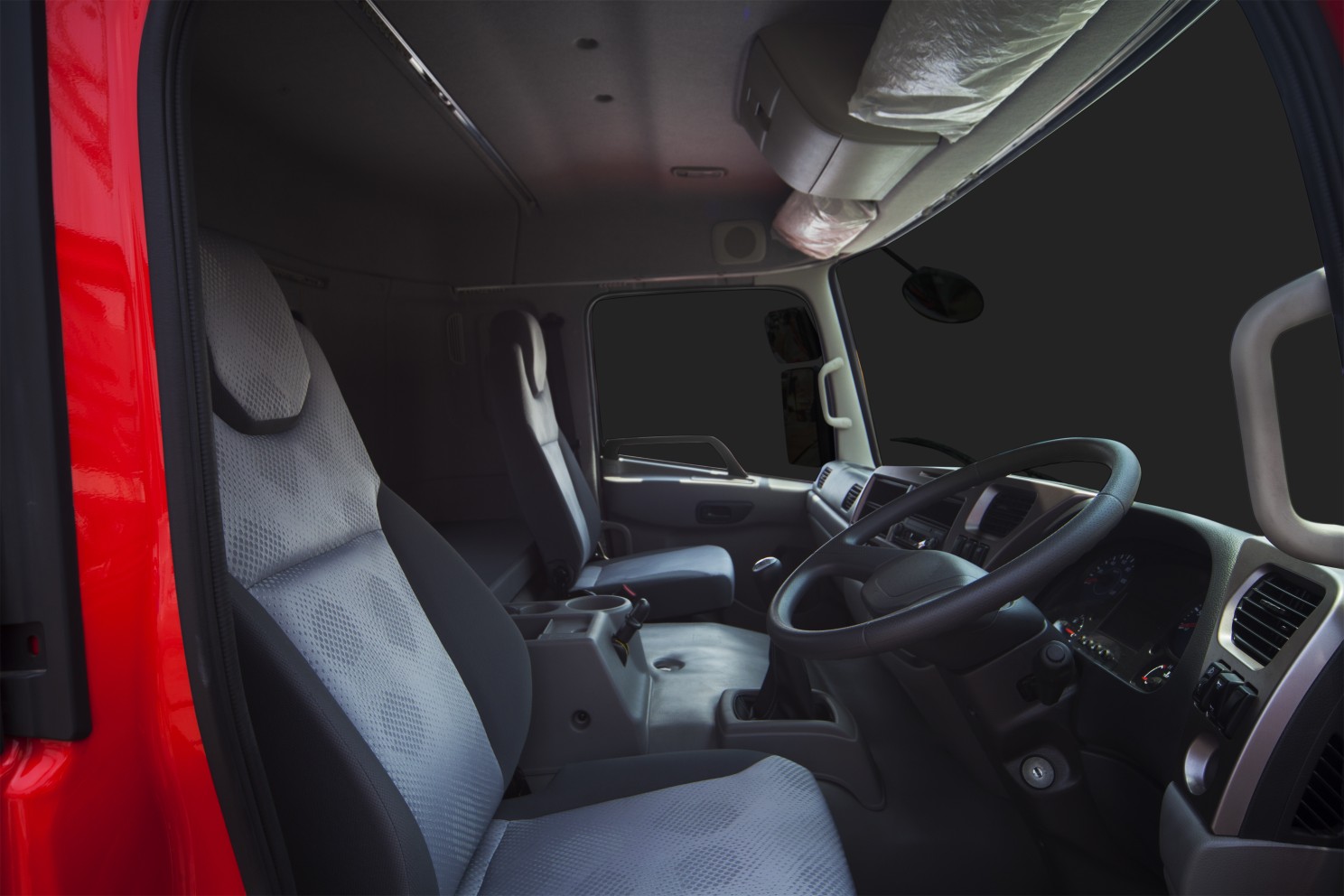
Susie Jones
Cinq conseils pour faire de votre cabine de camion une maison
Créée: 22/08/2024
•
Mise à jour : 22/08/2024
En tant que conducteur de camion, vous passez de longues heures sur la route, ce qui est souvent fatigant et monotone. Il est donc naturel que vous souhaitiez que votre environnement, l'endroit où vous êtes stationné le plus longtemps, soit comme une seconde maison. C'est pourquoi de nombreux conducteurs ont tendance à personnaliser et à décorer leur cabine. Mais quelles sont les meilleures façons de faire en sorte que votre cabine couchette se sente comme un second chez-soi ? Nous avons rassemblé cinq conseils pour vous aider dans votre démarche.
Décoration
L'une des meilleures façons de personnaliser votre cabine est d'y ajouter des décorations qui vous rappellent votre maison. Les décorations vous permettent également d'ajouter du style et de la couleur.
Literie et oreillers - Ajoutez une touche personnelle à votre literie et à vos oreillers en choisissant des couleurs ou des motifs qui vous plaisent. Cela peut rendre votre cabine un peu plus confortable et moins stagnante.
Housses de siège - Les housses de siège sont souvent disponibles dans des couleurs, des motifs et des matériaux différents qui donneront de la vie à votre cabine. Non seulement elles rendent la cabine plus accueillante, mais elles protègent également l'intérieur de l'usure, de la saleté et des éclaboussures. Amazon propose généralement un grand choix de couleurs.
Tapis, rideaux et stores - Le choix de tapis et de rideaux peut transformer l'intérieur de votre cabine. Les rideaux n'ajouteront pas seulement une valeur esthétique, mais ils vous aideront également à passer une bonne nuit de sommeil.
Photos, affiches et œuvres d'art - Ces objets ne prennent pas beaucoup de place dans votre cabine et peuvent instantanément lui donner l'impression d'être chez vous. Utilisez des crochets de commandement pour une installation sans dommage.
Divertissement : À la fin de votre journée de conduite, détendez-vous comme vous le feriez à la maison en regardant la télévision, un DVD ou en regardant quelque chose en streaming sur votre ordinateur portable. Vous aurez besoin d'une connexion WiFi pour pouvoir regarder un film en streaming. N'oubliez pas de consulter notre [page des cartes] (https://snapacc.com/map/) pour savoir quels sont les arrêts qui proposent ce service.
Vous pouvez également créer un hotspot pour smartphone qui utilisera les données de votre téléphone pour la diffusion en continu. Les livres et les magazines sont un autre bon moyen de se divertir après une longue journée de conduite. Parfois, un simple appel vidéo à des amis ou à la famille peut vous détendre et vous donner l'impression d'être chez vous.

Confort
Vous passez beaucoup de temps dans la cabine, il est donc important de ne pas faire de compromis sur votre confort. Pourquoi ne pas investir dans les éléments suivants ?
Surmatelas - Il est essentiel pour votre sécurité et celle des autres de passer une bonne nuit de sommeil. Investir dans un bon surmatelas vous permettra de dormir dans un endroit confortable.
Siège de conducteur ergonomique - Vous passerez la majeure partie de votre temps sur le siège de conducteur, il est donc important de veiller à ce qu'il soit le plus confortable et le plus confortable possible. Investissez dans un siège ou un coussin ergonomique qui soutiendra votre dos pendant ces longues heures.
Oreillers et couvertures supplémentaires - Comme indiqué plus haut, l'achat de literie et de coussins dans une couleur ou un motif qui vous plaît peut donner à votre cabine l'impression d'être un foyer. Pensez à acheter des oreillers et des couvertures supplémentaires pour ajouter une touche encore plus personnelle à la cabine, et un maximum de confort.
Coin cuisine/appareils électroménagers
L'ajout d'un mini-réfrigérateur ou d'un micro-ondes dans votre cabine peut vous permettre de préparer des repas comme vous le feriez à la maison, de sorte que vous n'aurez pas à vous rabattre sur les relais routiers et les restaurants. Nous vous suggérons de réfléchir aux articles dont vous auriez besoin dans ce domaine. Par exemple, si vous êtes un buveur de café, essayez de vous procurer une petite machine à café. L'utilisation de votre espace cuisine et de vos appareils électroménagers vous évitera non seulement de dépenser une fortune au restaurant, mais améliorera également votre état de santé général.
Garder les choses propres et bien rangées
Vivre dans un petit espace peut vite devenir désordonné. Investir du temps et des efforts dans une routine de nettoyage régulière peut faire des merveilles pour votre santé mentale et vous permettre de travailler de manière plus efficace. Le fait de disposer d'espaces dédiés à vos objets vous y aidera et [ProDrivers] (https://www.prodrivers.com/news/2020/10/40189977/6-ways-to-keep-your-cab-and-sleeper-berth-organized) propose d'excellents conseils pour garder tout bien organisé.
Comment les chauffeurs routiers gèrent-ils l'ennui ?
L'ennui n'affecte pas seulement la satisfaction au travail, mais aussi la sécurité au travail. Il existe de nombreux moyens pour les conducteurs de camions de se divertir lorsqu'ils sont sur la route.
Musique et podcasts : La musique est un excellent moyen de divertir les conducteurs pendant les longs trajets. La création d'une liste de chansons préférées peut réduire instantanément l'ennui. Les podcasts sont un excellent moyen de varier les plaisirs. Beaucoup d'entre eux peuvent offrir des conseils, aider à acquérir de nouvelles compétences ou simplement divertir.
Se dégourdir les jambes : S'arrêter et sortir du taxi pour se dégourdir les jambes peut instantanément chasser l'ennui. Des arrêts réguliers peuvent également stimuler votre énergie.
Où dorment les camionneurs ?
Depuis le 1er novembre, les chauffeurs de poids lourds britanniques qui font des pauses hebdomadaires régulières dans leur cabine doivent désormais les prendre dans des aires de repos appropriées. En raison de la rareté de ces aires, certains chauffeurs se reposent sur des aires de repos souvent peu sûres. Il est donc essentiel de trouver un endroit sûr, sécurisé et tranquille où se garer pour passer une bonne nuit ou se reposer. En utilisant notre application intruck ou en vous rendant sur notre [page des cartes] (https://snapacc.com/map/), vous pourrez trouver un parking pour camions près de chez vous et voir quelles sont les installations proposées.
Comment les chauffeurs routiers gèrent-ils la solitude ?
Si le métier de chauffeur routier présente de nombreux avantages, l'un de ses inconvénients peut être la solitude. Elle peut être un problème pour de nombreux conducteurs qui se sentent isolés par la nature de leur travail. Prévoir de rester en contact avec ses amis et sa famille peut donner un coup de pouce aux conducteurs lorsqu'ils sont sur la route. Les forums sur le camionnage, les groupes Facebook et les salons de discussion sont très utiles si vous souhaitez faire partie de la communauté du camionnage. Le site [All Trucking] (https://www.alltrucking.com/faq/how-beat-being-lonely-truck-driver-road) contient des conseils fantastiques pour vous aider à combattre la solitude en tant que camionneur sur la route.
Faire en sorte que votre cabine de camion se sente comme chez vous demande un peu d'effort et de créativité, mais les avantages d'une telle démarche rendront vos longs trajets beaucoup plus faciles. Il est important de se rappeler que de petites touches peuvent faire une grande différence dans votre espace de vie et que les conseils ci-dessus vous permettront de le rendre confortable et accueillant. Comment faites-vous pour que votre cabine se sente comme une maison loin de chez vous ?



